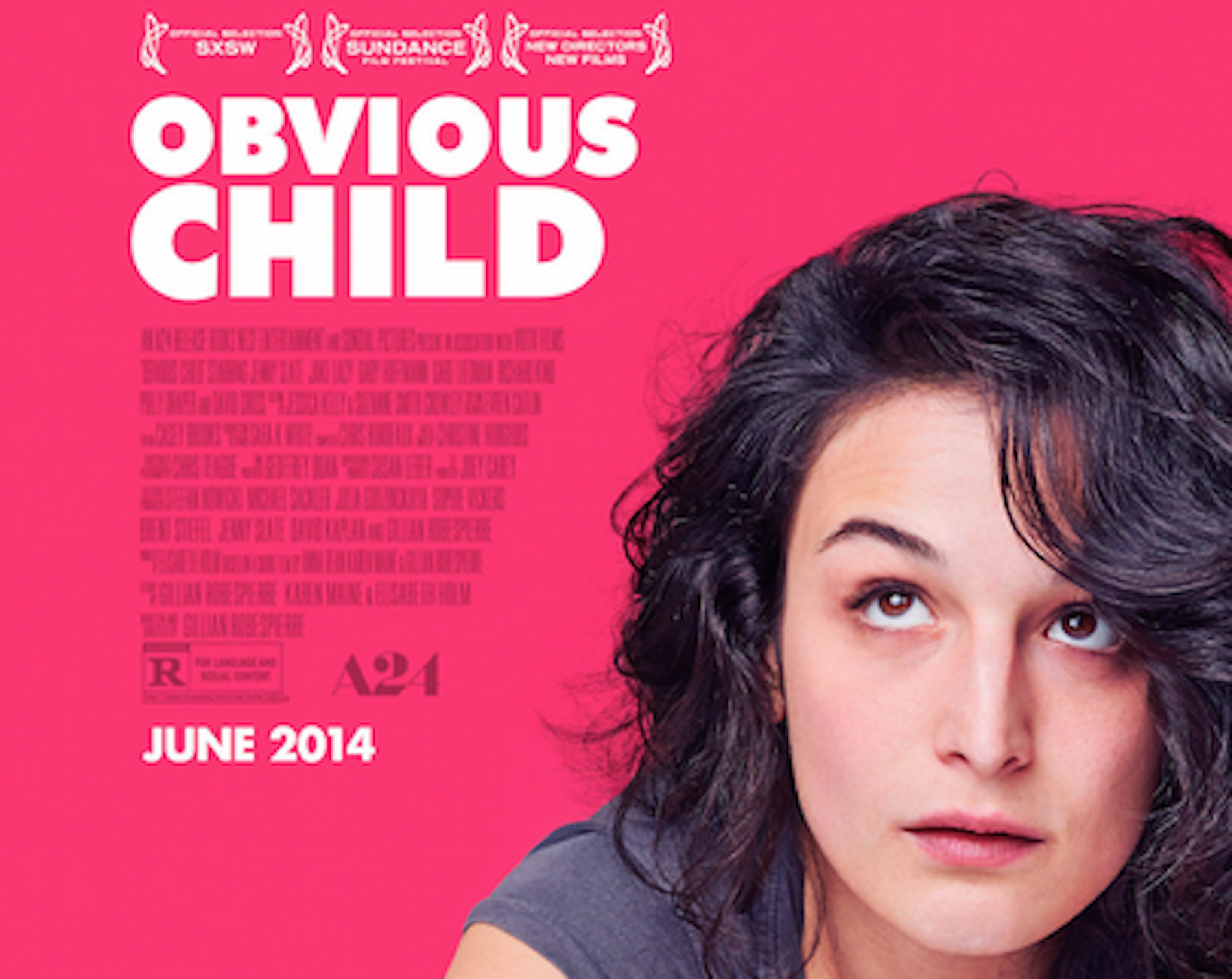Gillian Robespierre’s new comedy brings some much-needed attention to both Jenny Slate and the reality of abortion stories.
by Ashley Canino
Throughout the past week I have been practically begging people to ask me about the film screening I was attending.
“Obvious Child? What’s it about?” they would say. And I would answer, “It’s a romantic comedy about a girl who is getting an abortion.” Responses ranged from silence, to nervous laughter, to visceral and immediate disgust. I myself did not know how to feel about the film when I first read about it. I worried that it would be a step too far toward normalizing discussions of abortion, with the unintended effect of trivializing the subject. After all, while 40 percent of unintended pregnancies are terminated, that figure does not reduce the individual experiences of the women who make up that number.
The film, directed and co-written by Gillian Robespierre, takes the topic of abortion out of the political religious realms, and drops it into a real-life situation. That is, a real-life situation in New York City, where the relative ease of getting an abortion can make you forget that more than half of all women in the United States live in areas ruled by legislation considered hostile to abortion rights.
In Brooklyn, though, comedienne Donna Stern (Jenny Slate) need only visit her local Planned Parenthood and then come up with the cash to pay for the procedure. She finds herself in the predicament a few weeks after a drunken one night stand with Max (Jake Lacy), a rebound guy who couldn’t be more different from Donna aesthetically, but who clearly admires her zest and bawdy sense of humor. Lacy convincingly inhabits the role of Max, who for most of the film has no idea about Donna’s pregnancy. His performance slightly outshines that of Gabby Hoffman as Nellie, Donna’s friend who sometimes appears awkwardly devoid of emotion, but then at other moments ramps up to a feminist rage. The cast as a whole successfully plays off of each other without coming across as caricatures blatantly written to contradict one another. They create a solid and honest backdrop to a story-line that must draw on verisimilitude to draw people into a topic they are used to hearing about from an entirely different angle.
It’s not that this is the first time we have seen abortion in entertainment. This article from Slate does a great job of characterizing previous takes on the subject, noting that abortions as portrayed in film and television are significantly more dangerous than they are in real life, while life-saving medical procedures such as CPR are portrayed as significantly more successful. Historically, entertainment has portrayed abortion as something punishable, something that draws karmic retribution for the woman. Obvious Child looks at abortion on an individual level, through Donna, and as a communal experience through Nellie’s past and the experiences of other women at the clinic. It fails to touch on any supposed metaphysical repercussions and focuses on Donna coming of age at 28.
Donna comes to life through a powerful performance from Jenny Slate. It’s difficult to think of another actor or actress who so expertly walks the line between comedy and drama. When the script calls for somber emotion, it’s not through typical romantic comedy tools like a break up, but rather in moments when you would be more comfortable laughing things off, as Donna would. As she discusses her upcoming abortion—ominously scheduled for Valentine’s Day—and bounces uncomfortably between quips and tears, the audience moves with her. You will find yourself laughing out loud and the next second dabbing your eyes. Naysayers may argue that the film trivializes abortion and makes it seem like a quick fix for a turn of irresponsibility, but there is no reason to think that the weight Donna endures is atypical or insufficient just because she isn’t destroyed by it. By the end of it all, Donna’s growth as a person is significant, though she doesn’t wake up as a completely new, reformed woman. The comedienne is still herself, but more aware of what womanhood can mean beyond jokes about periods and day-old panties. We grow up and life goes on—even after an abortion.
Obvious Child won’t be the thing to convince pro-lifers that there is more to the story, but it could certainly go a long way in helping women see the choice for what it is; a choice that many women have made, a choice that you may reflect on for many years and never lose emotion over, but that will not necessarily bring on heaps of regret, a choice that will have consequences, but not define you.
Obvious Child was released today in select theaters. See the film’s website for more information.
Image courtesy A24.




